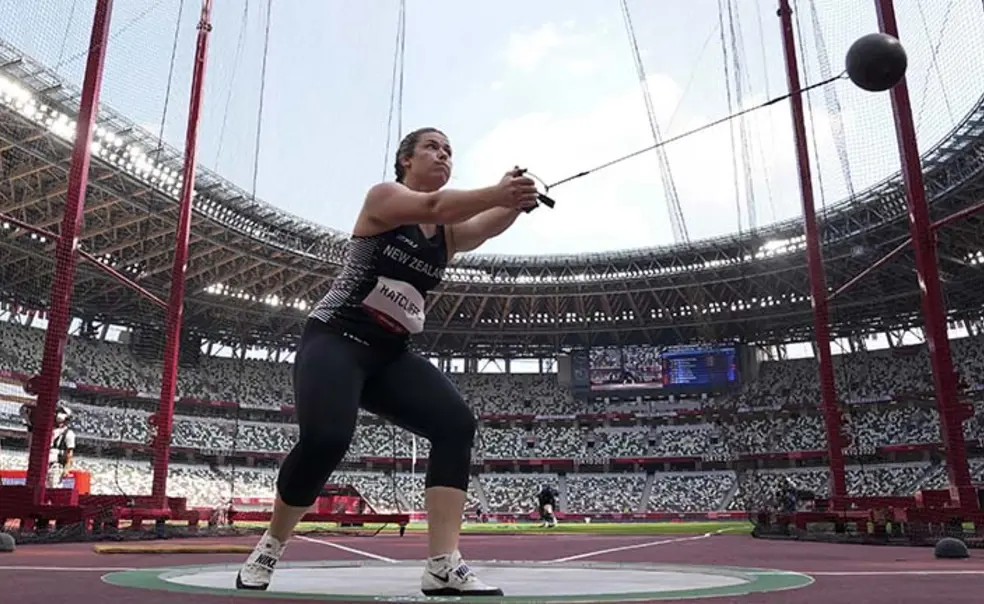Love of Sport Was Key for Tigers in Tokyo Olympics
‘To go a long way in sport, you have to enjoy the journey,’ said pole vaulter Sondre Guttormsen ’23
When Anna Van Brummen ’17 walked out into the Opening Ceremony of the Tokyo 2020 Olympics, she noticed the odd contrast between the anticipation and the lack of spectators in the near empty stadium.
“I had this whole big thing built up and I got up there, and then in the end it’s just fencing,” said Van Brummen, who finished fifth place in team epee for the USA. “It’s the same thing you do at the other tournaments, [but at] the Olympics.”
Julia Ratcliffe ’16, a hammer throw Olympian on team New Zealand who finished ninth, agreed.
“You’re competing against the same people as at the World Championship events,” said Ratcliffe. “Without the crowd there, it definitely [felt] more like pure sport as opposed to the Olympic Games.”
Van Brummen, Ratcliffe, Mohamed Hamza ’23, a fencer on team Egypt who finished seventh in men’s foil, and Sondre Guttormsen ’23, a pole vault Olympian on team Norway, spoke about their experiences at the Olympics in a late-August panel organized by The Daily Princetonian.
All four faced different challenges leading up to and during the Olympics.
Two months before the competition, Hamza contracted COVID-19.
“I was doing really well in training, so I felt, like, invincible, but then I got [COVID] so then all my stamina and all my endurance went down the drain,” he said. Hamza concentrated on the mental aspects of fencing and made it to the quarterfinals, completing a comeback victory in the round of 16 along the way.
During the pole vault event, Guttormsen suffered an injury in his first attempt at clearing 5.65 meters, which took him out of the competition.
“To go a long way in sport, you have to enjoy the journey and not just the final performance because [in] the final performance you might not achieve your Olympic gold dream,” he said. “But if you enjoyed the training and the journey, you'll have a good time with a sport, regardless of the outcome.”
To train for the 2016 Olympics, Van Brummen and Ratcliffe both took a leave of absence from Princeton during their senior year. Ultimately, neither qualified to compete in Rio de Janeiro. But Van Brummen said that experience ultimately changed her approach to fencing for the better, and it helped her handle the unusual nature of the 2020 Olympics.
“As soon as my goal changed from making certain teams and making certain results to just fencing for fun and trying to become the best fencer I can be, that’s when I started enjoying fencing so much more and I started seeing more results,” she said.
In the past, Ratcliffe had strong results but put a lot of pressure on herself to achieve them. She said that she enjoyed winning but not the competitions themselves when she was stressed and anxious.
“Personally, one of my big goals [for Tokyo] was to go out and throw with joy,” Ratcliffe said. “I feel like I achieved it. I’m really proud of how I approached [the Olympics] mentally.”










No responses yet